One of the biggest transitions into college is figuring out when, where, and what to eat on a daily basis. Trying to keep a well balanced diet can be hard if there aren’t enough options on campus. I know I’m not the only one who tries really hard to eat healthy throughout the day to make up for the late night Cosmic, Cookout, and Domino’s runs. Sometimes, food items we assume to be healthy are actually full of sugar, sodium, calories, etc. I’m here to expose some of the healthy myths about various food items from Duke’s eateries.
1. ABP Yogurt Parfait
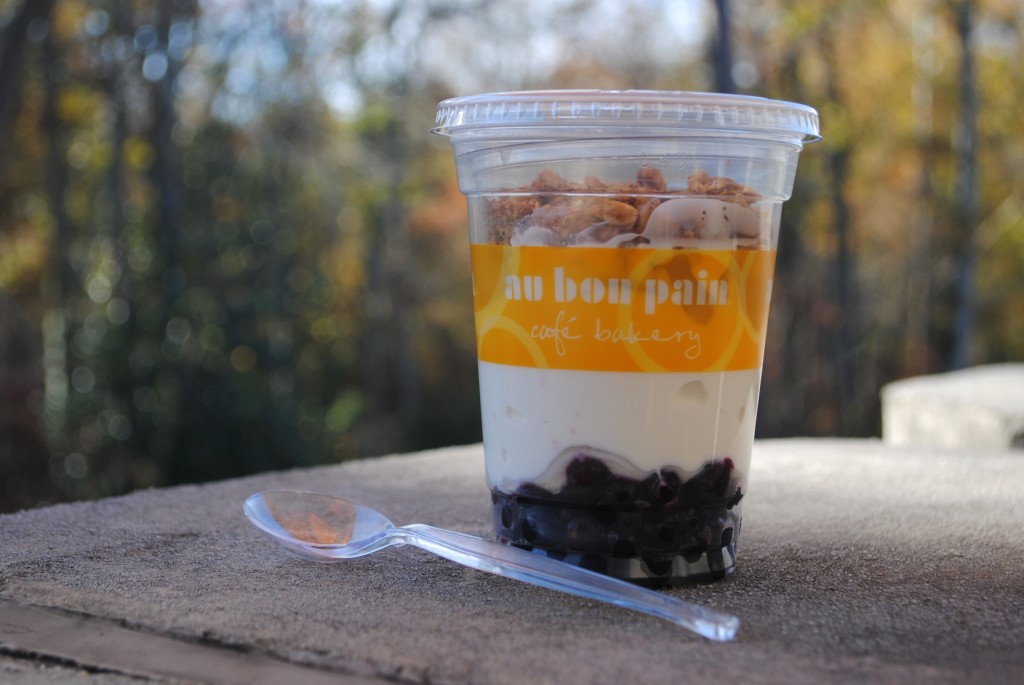
Photo by Sydney Segal
One of ABP’s most popular breakfast food is their mixed berry parfait. Yogurt and fruit, what could be more healthy than that right? Well, a lot of yogurt parfaits have tons of sugar due to the fruit compote at the bottom. The mixed berry parfait from ABP has 45g of sugar, and according to MDhealth.com, the daily intake of sugar should fall between 25-36g. You’re already exceeding that with your first meal of the day! For a healthier, alternative option, try having plain yogurt and adding fresh fruit yourself instead.
2. Quencher’s Smoothies
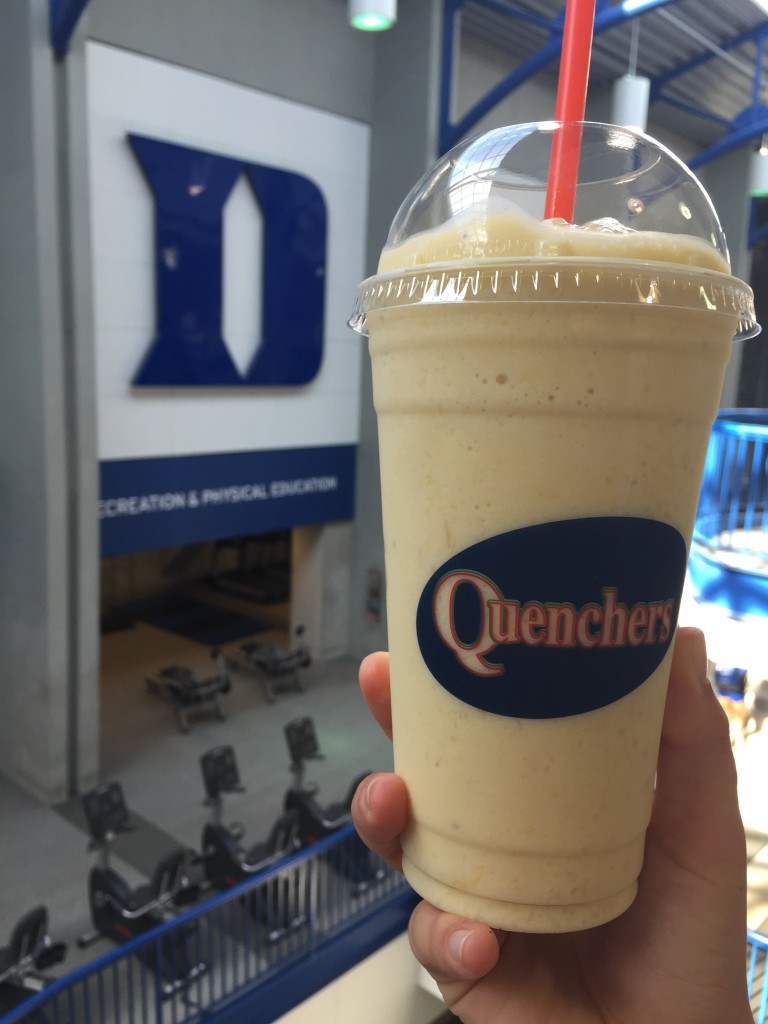
Photo by Sydney Segal
Like most students, I’m sure your favorite part of your Wilson Gym workout is the Quenchers smoothie afterwards. I’m sad to tell you that Quencher’s smoothies include a bunch of added sugar for extra sweetness. Combined with the natural sugars from the fruit and added chocolate or vanilla protein powder your “healthy” post-workout snack just transformed into your next workout mission. Next time, just ask for no added sugar.
3. The Loop Walnut Gargonzola Salad
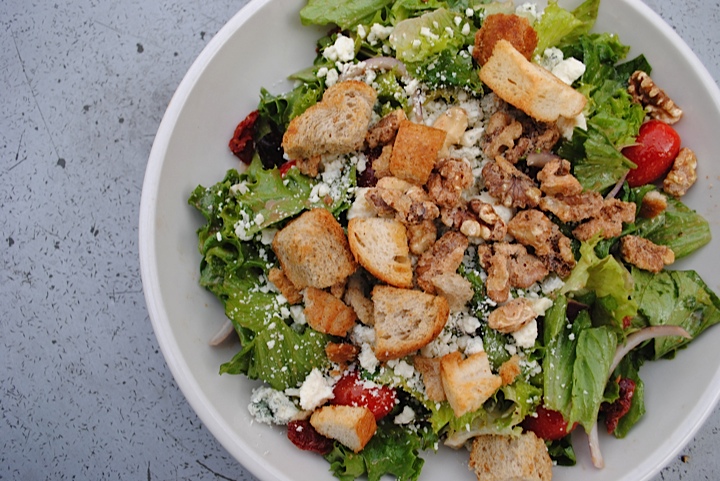
Photo by Sydney Segal
Salads are one of the easiest food items to transform into an unhealthy meal without even realizing. The Walnut Gargonzola Salad, which has grape and sun-dried tomatoes, candied walnuts, gorgonzola cheese, and onions, from The Loop has a total of 529 calories. Add croutons and balsamic dressing and you’re coming in at a whopping total of 773 calories and 56g of fat. At that point, you might as well just go for a burger. But if you’re feeling a salad, use low fat cheeses, ditch the croutons, and pick low-sugar dressings.
4. ABP 12 Veggie Soup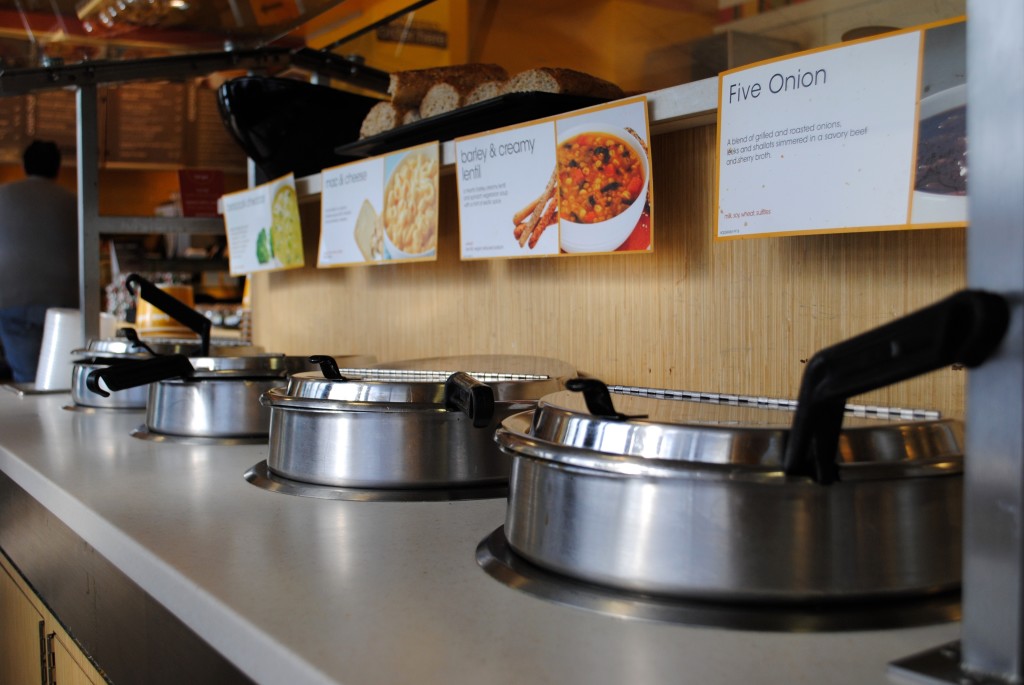
Photo by Sydney Segal
Its a cold, rainy day in Durham and you desperately want some hot soup. ABP’s 12 Veggie Soup, with a tomato base and loaded with vegetables, seems like a healthy option. Indeed, it is the healthier choice when compared to a creamier, more fattening soup like the Broccoli Cheddar. However, the 12 Veggie Soup has 1200g of sodium and 14g of sugar. Soups in general are high in sodium, so look out for that the next time you decide to enjoy a hot meal.
5. Gluten Free Muffins
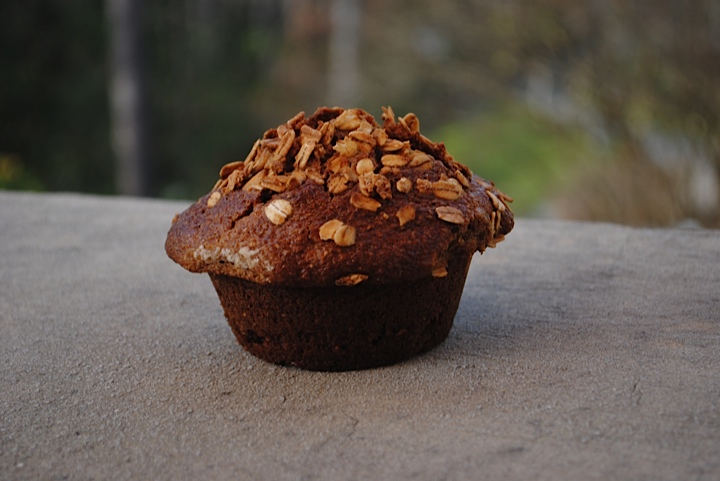
Photo by Sydney Segal
Doesn’t it feel like everyone is going “gluten free” these days? This fad diet is spreading widely and quickly, possibly for the wrong reasons. Many people think that gluten is inherently bad for your body, unhealthy and fattening. In fact, many gluten free foods, like the gluten free muffins from Twinnie’s and the assortment of Udi’s Gluten Free products in the Marketplace gluten-free fridge contain extra sugar and calories to increase their flavor.
6. Veggie Burgers
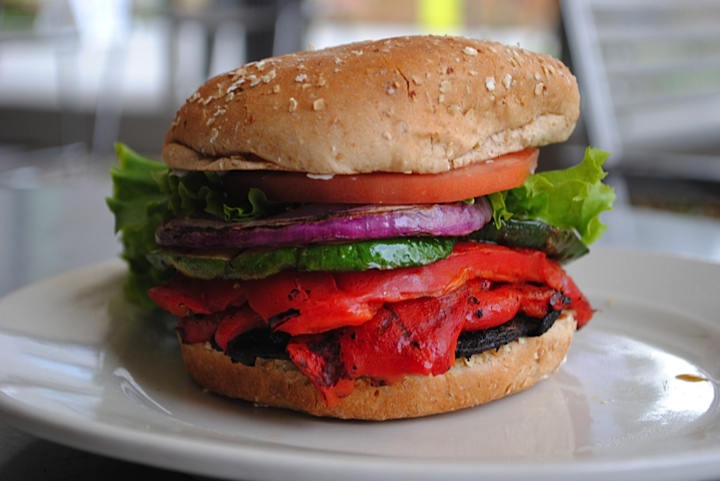
Photo by Sydney Segal
For those of you who are vegetarian or enjoy the idea of eating a burger without the calories of a beef patty, I’m sure the veggie burger from The Law School’s Cafe de Novo, or the black bean burger from The Loop are your go-to choices. However, many veggie burgers tend to have high levels of sugar, carbs and unhealthy fats. To make sure your burger is as healthy as you want, find out what ingredients the burger is made with, and whether or not it contains low levels of cholesterol, sugar, and saturated-fats.


